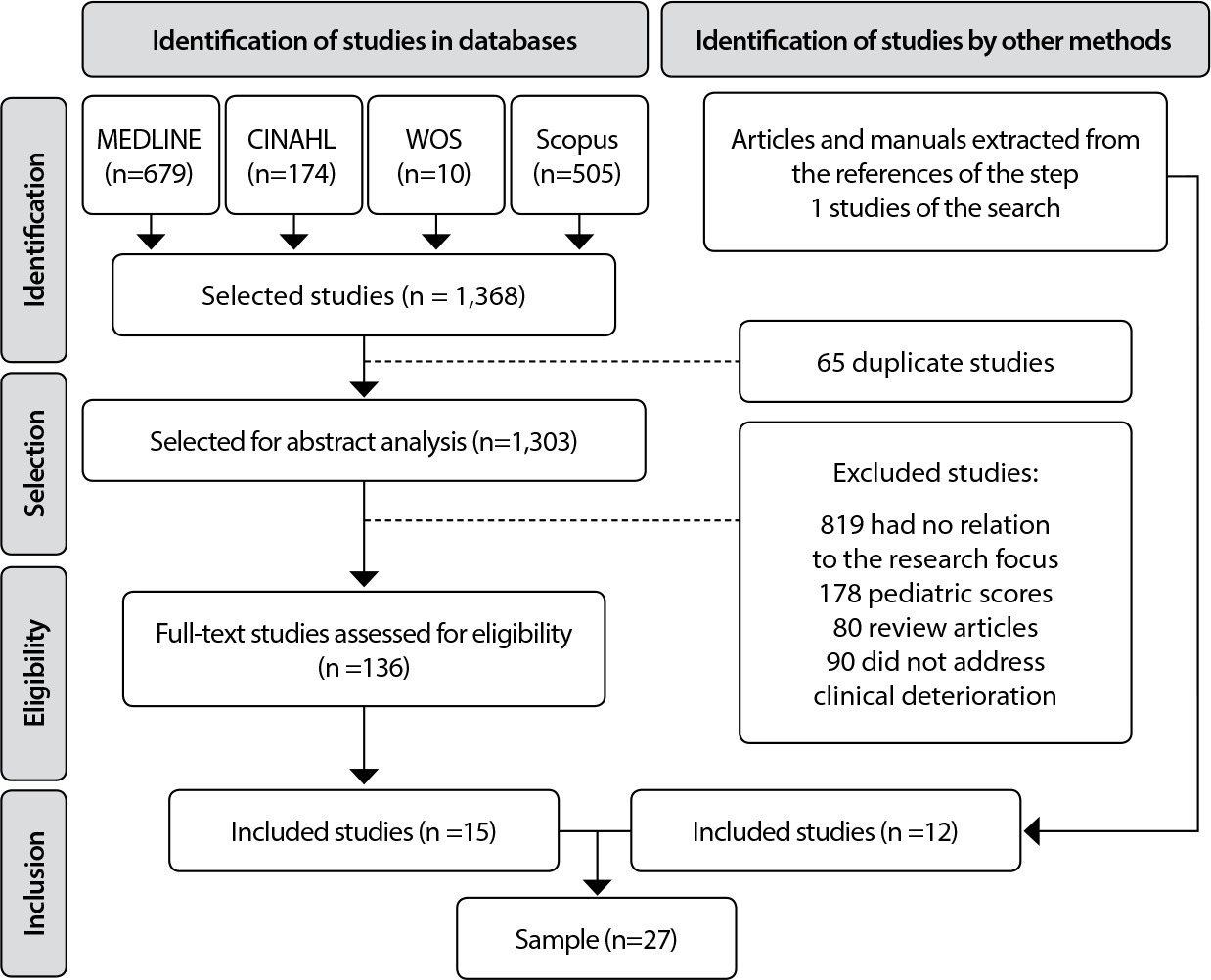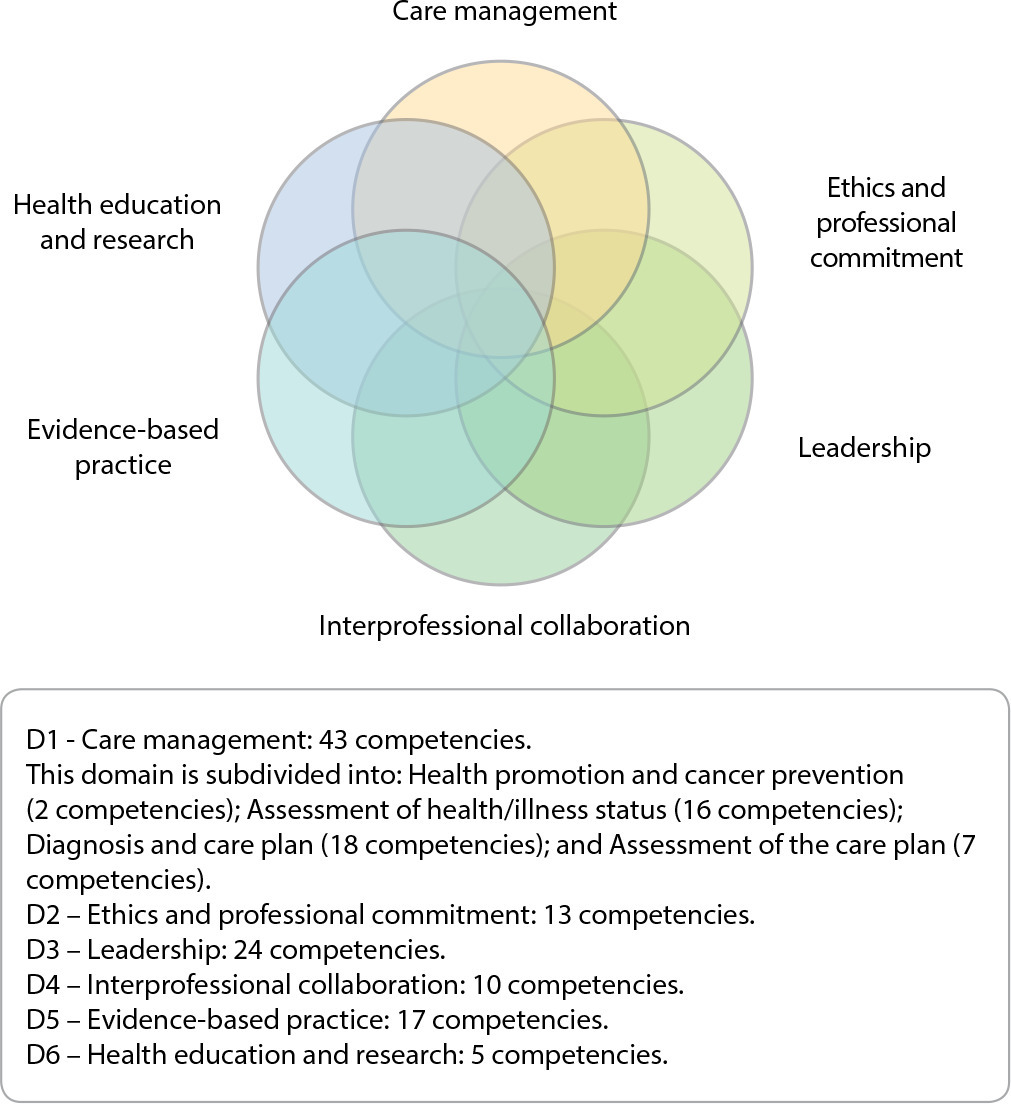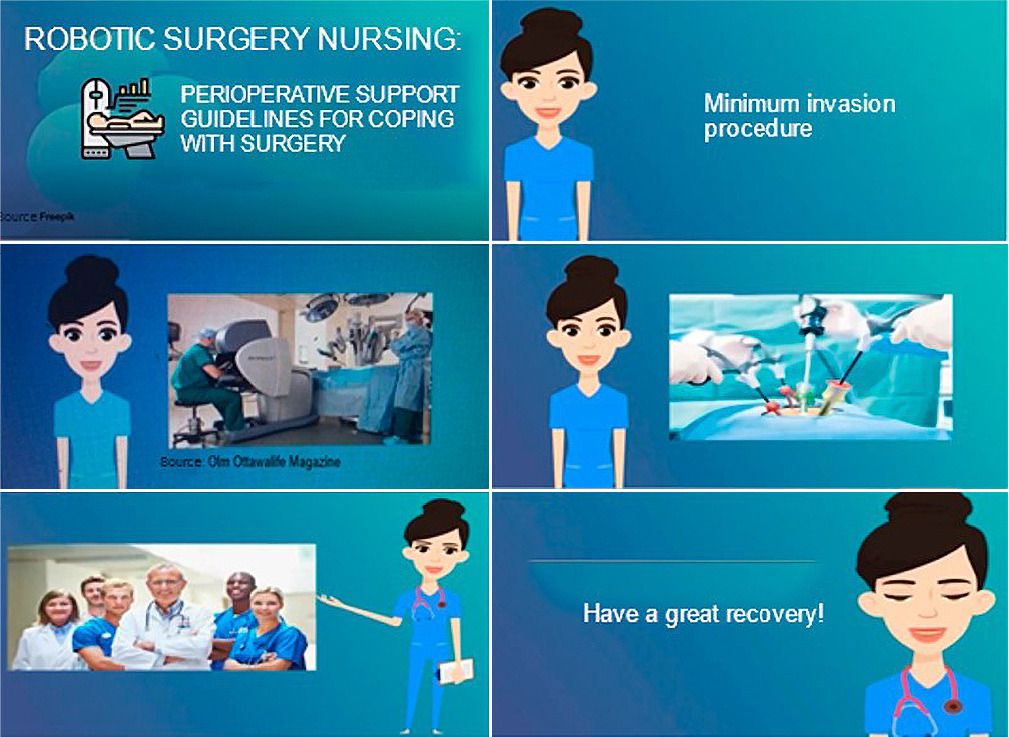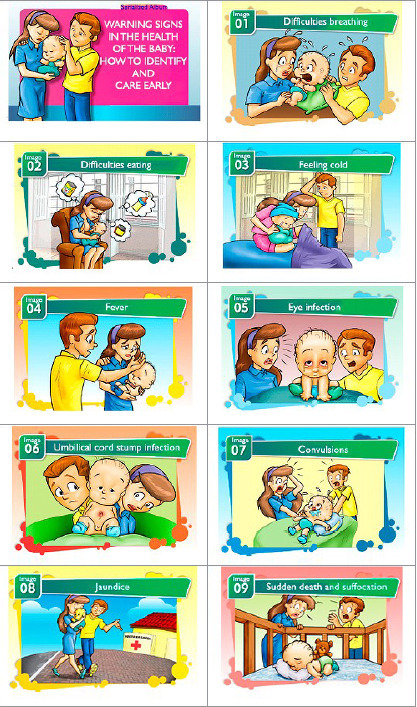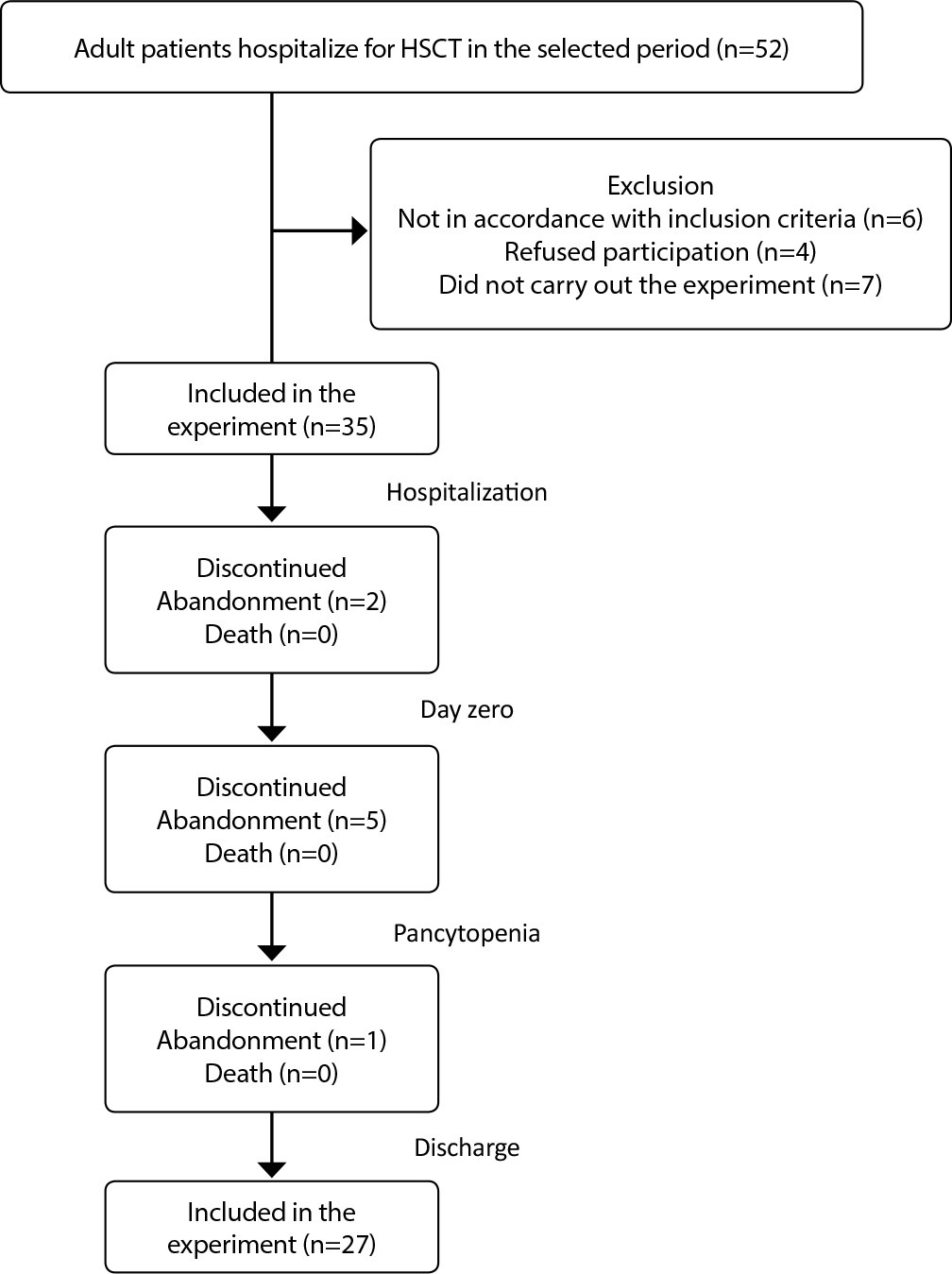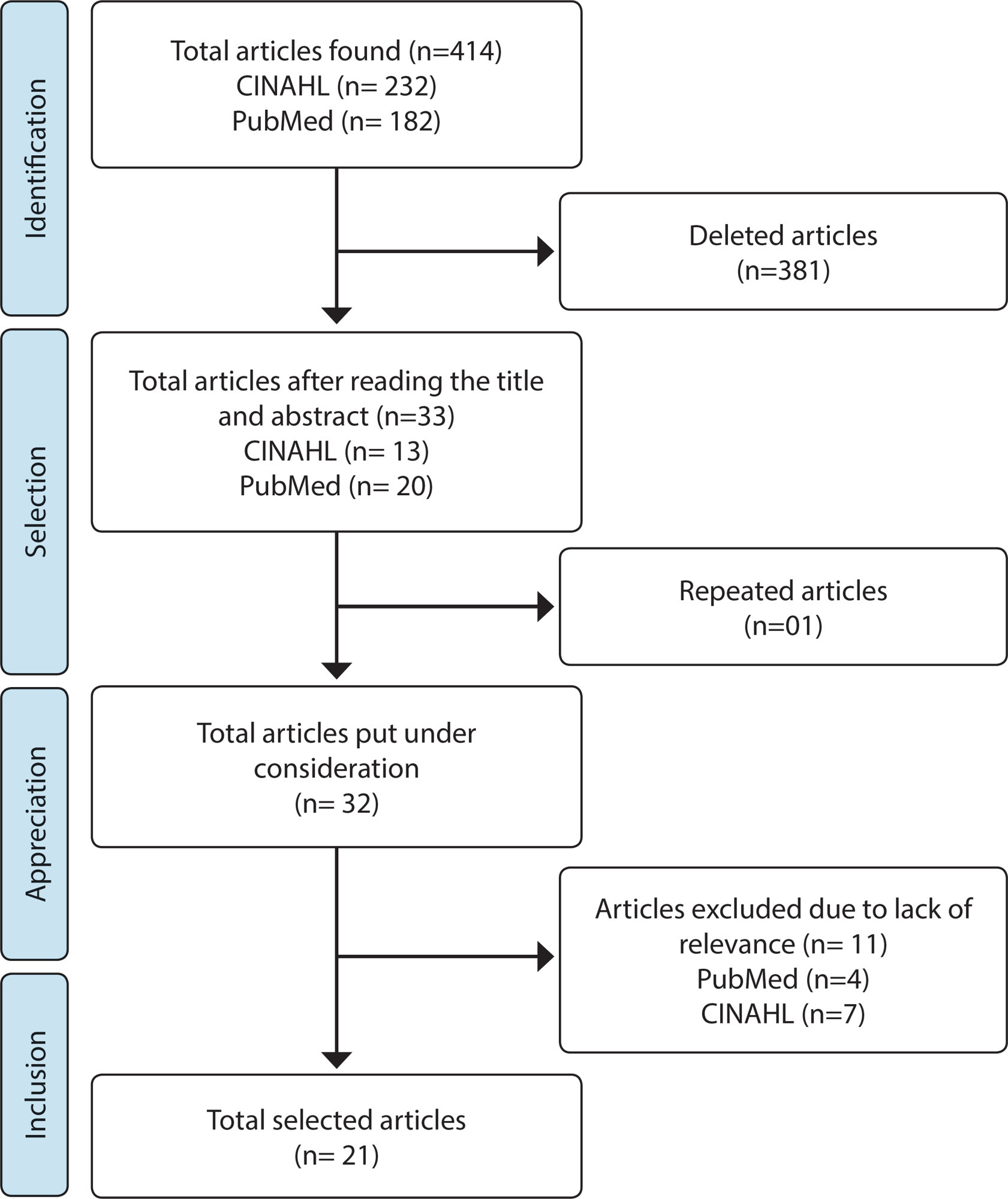-
01-01-2016
Descobertas das Ciências Biológicas e as implicações para a prática da Enfermagem
Revista Brasileira de Enfermagem. 2016;69(4):619-620
Abstract
Descobertas das Ciências Biológicas e as implicações para a prática da Enfermagem
Revista Brasileira de Enfermagem. 2016;69(4):619-620
DOI 10.1590/0034-7167.2016690401i
Views1A produção de conhecimento na área das ciências biológicas, durante muito tempo, foi vista como de responsabilidade e competência exclusivamente de profissionais médicos. Esse cenário alterou-se frente à tendência mundial de aperfeiçoamento dos demais profissionais de saúde, incluindo-se a necessidade de se concretizar a utilização da metodologia da prática baseada em evidência na atuação do […]See more -
01-01-2016
Discoveries of Biological Sciences and their implications for nursing practice
Revista Brasileira de Enfermagem. 2016;69(4):619-620
Abstract
Discoveries of Biological Sciences and their implications for nursing practice
Revista Brasileira de Enfermagem. 2016;69(4):619-620
DOI 10.1590/0034-7167.2016690401i
Views1For the longest time, the production of knowledge in the field of biological sciences was viewed as the exclusive responsibility and competence of medical professionals. This scenario has changed in light of the worldwide trend of improvements in other health professions, which includes the need to implement the use of evidence-based methodology in nursing practice. […]See more -
01-01-2016
The importance of civilian nursing organizations: integrative literature review
Revista Brasileira de Enfermagem. 2016;69(3):610-618
Abstract
The importance of civilian nursing organizations: integrative literature review
Revista Brasileira de Enfermagem. 2016;69(3):610-618
DOI 10.1590/0034-7167.2016690326i
Views0See moreABSTRACT
Objective:
to identify and analyze evidence from studies about the importance of civilian nursing organizations.
Method:
an integrative literature review, for which searches were conducted in the databases LILACS, PubMed/MEDLINE, SciELO, BDENF, and Scopus.
Results:
sixteen articles published between the years 2004-2013 were selected, 68.75% of which were sourced from Brazilian journals and 31.25% from American journals.
Conclusion:
civilian nursing organizations are important and necessary, because they have collaborated decisively in nursing struggles in favor of the working class and society in general, and these contributions influence different axes of professional performance.
PlumX Metrics
- Citations
- Citation Indexes: 11
- Usage
- Full Text Views: 7628
- Abstract Views: 310
- Captures
- Readers: 19
-
01-01-2016
Effects from acupuncture in treating anxiety: integrative review
Revista Brasileira de Enfermagem. 2016;69(3):602-609
Abstract
Effects from acupuncture in treating anxiety: integrative review
Revista Brasileira de Enfermagem. 2016;69(3):602-609
DOI 10.1590/0034-7167.2016690325i
Views0See moreABSTRACT
Objective:
to evaluate the scientific evidence that is available in the literature on the effects of acupuncture for treating anxiety and on the quality of such studies.
Method:
the study is an integrative review of CINAHL, LILACS, PUBMED-PICO, SciELO, and The Cochrane Library between 2001 and 2014. Keywords anxiety, acupuncture therapy, acupuncture, and anxiety disorders were combined among themselves to ensure a wide search of primary studies.
Results:
among 514 articles, 67 were selected to be fully read and 19 were included. Among these, 11 were found to have strong evidence levels. Among the six articles about randomized clinical studies, five were found to be of reasonable quality. Two studies used acupuncturist nurses to perform their interventions. Its results showed positive and statistically significant effects from using acupuncture for treating subjects with anxiety.
Conclusion:
acupuncture seems to be a promising treatment for anxiety; however, there is a need for improving the methodological quality of the research on this field.
-
01-01-2016
Palliative care and spirituality: an integrative literature review
Revista Brasileira de Enfermagem. 2016;69(3):591-601
Abstract
Palliative care and spirituality: an integrative literature review
Revista Brasileira de Enfermagem. 2016;69(3):591-601
DOI 10.1590/0034-7167.2016690324i
Views0See moreABSTRACT
Objective:
to analyze scientifi c articles published in international online journals about palliative care and spirituality.
Methods:
an integrative literature review with data collected in September 2014 from the LILACS, SCIELO, MEDLINE/PubMed, and IBECS databases.
Results:
thirty-nine publications were identifi ed and their textual analysis facilitated through four thematic approaches: the meaning of spirituality in the context of palliative care; palliative care and spiritual support; spirituality and relief of pain and other symptoms in patients under palliative care; and instruments to evaluate the spiritual dimension of the scope of palliative care.
Conclusion:
this study examined the relevance of the spiritual dimension in the care of patients with palliative care and the need for developing new studies to disseminate knowledge about this topic.
Descriptors:
Palliative Care; Palliative Care at End of Live; Spirituality; Religion; Health.
PlumX Metrics
- Citations
- Citation Indexes: 53
- Policy Citations: 1
- Usage
- Full Text Views: 46019
- Abstract Views: 1957
- Captures
- Readers: 499
-
01-01-2016
Educational technologies to encourage (self) care in postpartum women
Revista Brasileira de Enfermagem. 2016;69(3):582-590
Abstract
Educational technologies to encourage (self) care in postpartum women
Revista Brasileira de Enfermagem. 2016;69(3):582-590
DOI 10.1590/0034-7167.2016690323i
Views0See moreABSTRACT
Objective:
to evaluate national and international literature regarding the use of educational technologies to encourage self care in postpartum women.
Method:
an integrative review of the literature. The articles were collected from the CINAHL, SCOPUS, PubMed, SciELO, LILACS and Cochrane databases; the time period for the articles referred to January/2004 to July/2014; the languages used in the articles were Portuguese, English, Spanish and French; the articles were selected from the following descriptors: postpartum care period, educational technology, nursing and self care. Twenty-seven articles were selected for analysis
Results:
based on the information found, the scales, counseling and home visits were among the most recommended educational technologies.
Conclusion:
the technologies promote communication, but are sometimes dependent on computer and internet access, which hinder their use by low-income women.
PlumX Metrics
- Citations
- Citation Indexes: 16
- Usage
- Full Text Views: 13443
- Abstract Views: 419
- Captures
- Readers: 80

-
01-01-2016
Patients with HIV/Aids and ulcer risk: nursing care demands
Revista Brasileira de Enfermagem. 2016;69(3):574-581
Abstract
Patients with HIV/Aids and ulcer risk: nursing care demands
Revista Brasileira de Enfermagem. 2016;69(3):574-581
DOI 10.1590/0034-7167.2016690322i
Views0See moreABSTRACT
Objective:
to analyze the demand for nursing care and the risk of pressure ulcers (PU) of patients with HIV/Aids.
Method:
quantitative survey, carried out from December 2012 to March 2013 in a public hospital of Teresina, state of Piauí, Brazil.
Results:
the sample of 31 patients was predominantly male, mean age 36.6 years, average care demand 49.4%, most showing some risk of developing PU. The variables correlated with PU risk were care demand and clinical outcome (death). Those associated with care demand were age and clinical outcome (death).
Conclusion:
the results showed that patients require moderate nursing care needs and most of them present risk of developing PU.

-
01-01-2016
Lack of anticipated support for care for community-dwelling older adults
Revista Brasileira de Enfermagem. 2016;69(3):566-573
Abstract
Lack of anticipated support for care for community-dwelling older adults
Revista Brasileira de Enfermagem. 2016;69(3):566-573
DOI 10.1590/0034-7167.2016690321
Views0See moreABSTRACT
Objective:
to identify the factors associated with lack of anticipated support for care for community-dwelling older adults.
Method:
this study presents comparison and logistic regression analyses of data from 671 individuals who took part of the multicentric study entitled “Frailty in older Brazilians” – a quantitative, epidemiologic and transversal investigation carried out between 2008 and 2009.
Results:
the subjective evaluation of anticipated support for care for community-dwelling older adults was a good indicator of risk for lack of anticipated support for care in women, older adults who live alone and those with poor self-rated health.
Conclusion:
it is necessary to reflect upon the formal support system currently available for older people in Brazil, considering that those who most frequently presented lack of anticipated support for care are an increasing population. The study also highlights the importance of using subjective methods for the evaluation of the adequacy of older adults’ support network.
PlumX Metrics
- Citations
- Citation Indexes: 7
- Usage
- Full Text Views: 5670
- Abstract Views: 460
- Captures
- Readers: 49
Search
Search in:
Nuvem de Tags
Enfermagem (930)Cuidados de Enfermagem (269)Atenção Primária à Saúde (239)Idoso (208)Educação em Enfermagem (151)Segurança do Paciente (150)Saúde Mental (145)Educação em Saúde (139)Estudos de Validação (131)Qualidade de Vida (104)Tecnologia Educacional (100)Promoção da Saúde (99)COVID-19 (91)Criança (91)Família (87)Enfermagem Pediátrica (86)Saúde do Trabalhador (86)Adolescente (85)Saúde Pública (82)Estudantes de Enfermagem (77)





